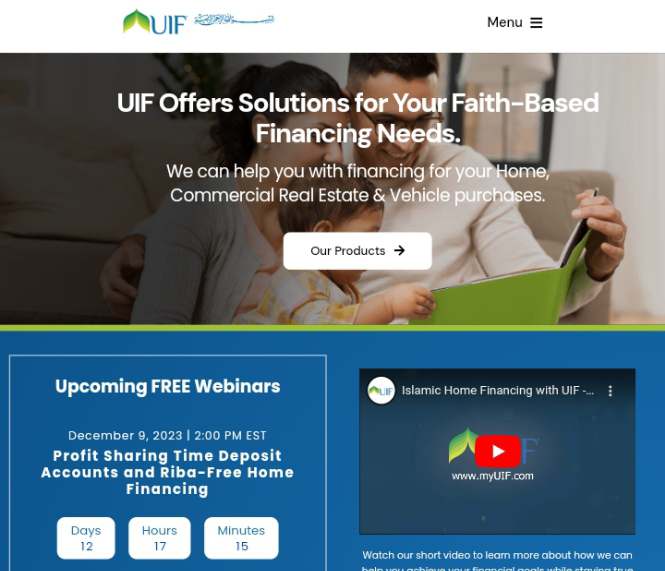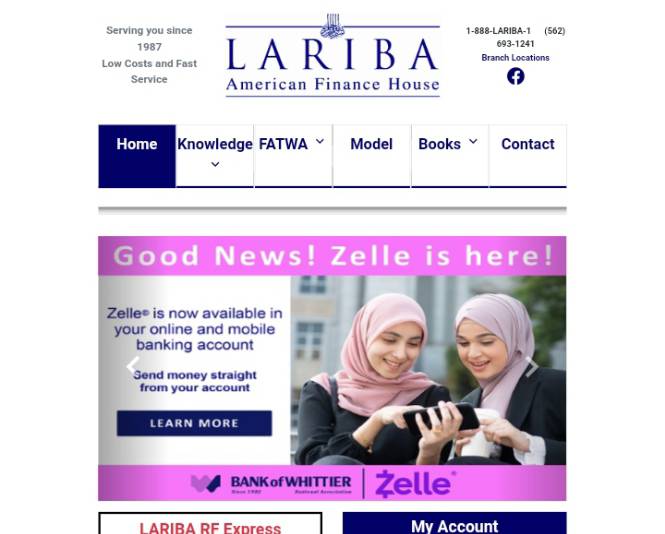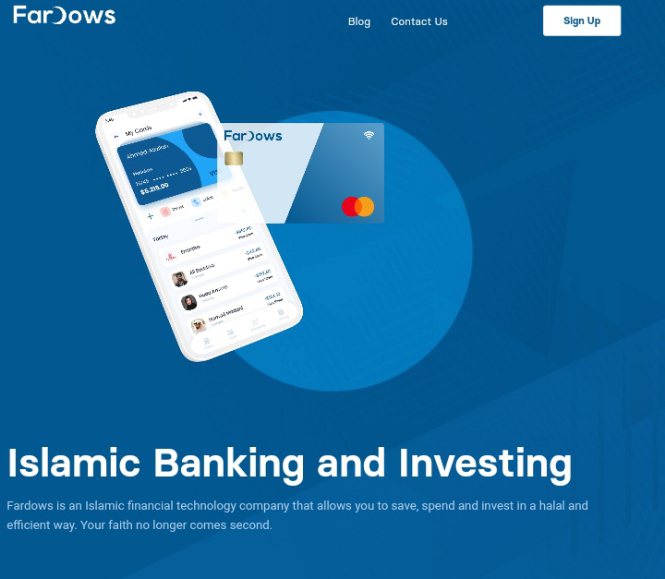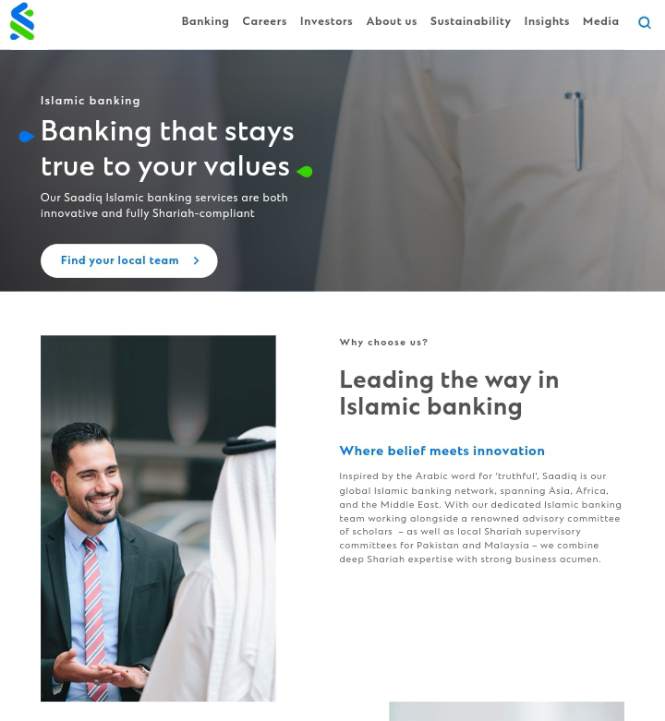Islamic banks have become more and more popular in the United States, drawing a wide range of clients. Islamic banking’s moral tenets appeal to both Muslims and non-Muslims. Islamic banks are popular in America for reasons other than their religious beliefs. They are getting popular because they provide a new angle on ethical and inclusive banking practices.
In this post, we’ll be listing all the Islamic banks in the US and reviewing their stats. This post will be very informative; do well to read it to the end.
Table of Contents
You might like: Best Islamic Banks In The UAE
ISLAMIC BANKING SYSTEM
The Islamic banking system is a system of banking that provides financial services in line with the laws, values, and regulations of Shari’ah, an Islamic legal system. Receiving and paying for “riba” (interest), “gharar” (too much risk), “maysir” (gambling), short sells, or funding actions deemed detrimental to society is prohibited by Shari’ah.
The Islamic banking system believes that there should be no exploitation of any party and the transaction should have a legitimate economic goal free from excessive speculation. The parties should also share the risks and profits of the business relationship.
The Islamic banking system has been gaining popularity as it should because of its approach to banking. Rather than placing the entire burden on the entrepreneur, Islamic banking divides the total profit or loss between the lender and the recipient. When an Islamic bank finances a project, the project’s results will be split evenly between the two parties. This system of banking is excellent for minimizing the risk of a loss.
Since the traditional banking system is predicated on giving and receiving interest, which is expressly forbidden by Shari’ah law, Muslims abstain from using it for banking. About 25% of Muslims worldwide do not have bank accounts. These obstacles are eliminated by Islamic banking, enabling Muslims to have access to the financial system.
HISTORY OF ISLAMIC BANKING
The origins of Islamic banking can typically be traced to Middle Eastern merchants who began conducting financial business with European counterparts in the Middle Ages. They began by applying the same financial concepts as the Europeans.
But as trading networks advanced and European nations began opening local branches of their banks in the Middle East, some of these banks adopted the regional traditions of their newfound home, chiefly profit-and-loss sharing systems and no-interest financial systems. These European banks were able to meet the needs of Muslim company owners in the area by implementing these policies. This is what has grown to become what we have today as the Islamic banking system.
WHY ARE ISLAMIC BANKS NON-PROFIT?
The foundation of Islamic banking is in the principles of Islam concerning business dealings. The primary holy text of Islam, the Quran, serves as the foundation for Islamic banking practices. All transactions in Islamic banking must abide by Shariah, the Islamic legal code founded on the Quran’s teachings. In Islamic banking, the regulations that control business dealings are known as fiqh al-muamalat.
According to the dictates of the Qur’an, one should not take part in interest. This is the reason Islamic banking is non-profit-oriented. Islamic banking gets its unique justification from the fact that the institution of interest has no place in the Islamic order. These claims include increased equity participation in the economy and contributions towards a more equitable distribution of income and wealth. No matter why these loans are made or how much interest is charged, Muslims are not allowed to accept or give interest (riba) under Islamic law.
The Qur’an also states that people who disobey the ban on interest are at odds with God and His Prophet. The Hadith (prophecies of the Prophet) also unequivocally mentions the prohibition of interest. The Prophet said that everyone involved in the transaction—those who record it, those who offer interest, and those who take interest—is equally guilty.
You might like: Top: Best Banks in Canada you should Know right now
LIST OF ISLAMIC BANKS IN THE US
Below is a list of Islamic banks in the US:
1. University Islamic Financial Corporation (UIF Corporation)

Islamic Banks in the US
The first bank on our list of Islamic banks in the US is UIF Corporation. University Islamic Financial Corporation is a prestigious company that offers educational institutions all around the country access to its wealth of Islamic finance knowledge. This Michigan-based organization was founded in 1998 and has stayed dedicated to meeting the financial needs of educational institutions while upholding the principles of Islamic financing.
A wide range of Islamic financial products are included in the University Islamic Financial Corporation’s service portfolio. These services cover important topics such as working capital financing, equipment leasing options, and funding for development and building projects. The unflinching commitment of these products to sustaining the fundamentals of Islamic finance—interest-free transactions and the unwavering promotion of financial inclusivity—is what distinguishes them.
2. JPMorgan Islamic Finance
Next on our list of Islamic banks in the US is JPMorgan Islamic Finance. JPMorgan Chase & Co., a powerful force in the financial services industry, offers its knowledge of Islamic banking throughout the US and many other nations. The company delivers its Islamic financing solutions through its specialized Islamic finance unit, JPMorgan Islamic Finance.
A wide range of Islamic financial products that meet various financial demands are woven together within the framework of JPMorgan Islamic Finance. These include financing for homes and businesses as well as a wide range of investment options that are all carefully crafted to adhere to the holy tenets of Islamic finance. These values include a steadfast dedication to advancing financial inclusion and the outlawing of interest-based transactions.
JPMorgan Islamic Finance shows its dedication to its customers by giving advice and consulting services in addition to its range of products. With the help of these services, clients may confidently traverse the complex Islamic finance market and make decisions that align with Islamic finance principles.
Fundamentally, JPMorgan Islamic Finance represents a very important mission: to be a loyal partner to customers, helping them get the funding they need while consistently adhering to Islamic financial standards.
3. American Finance House – LARIBA

Islamic Banks in the US
American Finance House – LARIBA is next on our list of Islamic banks in the US. It is a distinguished financial services company operating within the United States. The abbreviation “LARIBA,” which appears in the company’s name, represents its dedication to offering creative financial solutions. Established in 1987, with its main office located in Pasadena, California, this company has stayed committed to the fundamentals of Islamic finance.
Islamic financial services are the area of expertise for American Finance House – LARIBA. These services cover a wide range of topics, such as business and home loans as well as various investment products. These products are unique because they follow the precepts of Islamic finance, which reject interest and place a higher priority on the development of financial inclusion.
Fundamentally, American Finance House – LARIBA is motivated by a commendable goal: to advance and nurture Islamic finance concepts both domestically in the US and internationally. This company promotes a more inclusive and equitable financial landscape by providing Sharia-compliant financial solutions, enabling individuals and organizations to navigate the financial world in a way that resonates with their principles.
4. Fardows

Islamic Banks in the US
Another bank on our list of Islamic banks in the US is Fardows. Fardows is an Islamic financial technology company that allows you to save, spend, and invest within the framework of Halal efficiently. It is the world’s first fully Sharia financial services solution. For the first time, Islamic-compatible financial products will be available to Muslims in the United States through Fardow’s innovative digital financial products.
You will be offered an interest-free halal banking account and debit card at Fardows, which can be used for anything you want to buy. You can easily pay for your account and use thousands of ATMs at no cost!
You’ll also get access to the smart roboadviser that will help you invest your money in an Islamic way, giving you attractive returns. Fardows’ risk-adjusted robo advisor takes into account your financial situation and is much cheaper than traditional financial advisors.
You might like: 11 Best Top Virtual Card Providers For Businesses
5. Standard Chartered Islamic Banking

Islamic Banks in the US
Standard Chartered is one of the best Islamic banks in the USA. It is a very popular international bank that has established itself in the field of Islamic financing. The Islamic finance division of the bank is known as “Standard Chartered Saadiq.”
A group of skilled professionals working out of Standard Chartered Saadiq Berhad have painstakingly designed and organized the whole line of financial products and services offered by Standard Chartered Saadiq. Their dedication to adhering to the Shariah regulations that oversee Islamic banking and finance is reflected in the moniker “Saadiq,” which means “truthful.”
It has an independent Shariah Advisory Committee that serves as further evidence of the bank’s unshakable commitment to adhering to Islamic financial standards. This committee, which is made up of eminent Shariah experts, offers advice both domestically and globally while guaranteeing that all products strictly adhere to Shariah.
Standard Chartered was the first international bank in Malaysia to provide Islamic Banking services, setting a noteworthy precedent in 1992.
Standard Chartered is in more than 70 countries worldwide and they are unwaveringly dedicated to providing exceptional Islamic solutions that meet the wide range of financial needs of their clients. Standard Chartered Saadiq is more than just a banking choice; it’s a dedication to upholding Islamic values and financial integrity, guaranteeing a full range of services globally.
6. Devon Bank, Chicago
The last bank on our list of Islamic banks in the US is Devon Bank, Chicago. Because of its unwavering dedication to serving the local population, Devon Bank is a vital component of the Chicago, Illinois, community. This neighborhood bank provides a wide range of crucial banking services and has its roots firmly planted in the center of Chicago.
The main focus of Devon Bank, Chicago is checking and savings accounts, which guarantee that people and businesses have access to the basic resources for managing their finances. It also offers home lending choices to help people realize their goals of becoming homeowners and provides a range of business finance options to help companies expand.
Beyond the essentials, the bank offers a wide array of investment solutions that enable customers to grow and manage their capital. When it comes to house finance, Devon Bank provides a plethora of options with different terms and loan amounts, enabling people to customize their homeownership experience to suit their requirements and goals.
One significant aspect of Devon Bank’s financial services is the availability of Murabaha financing, an Islamic financing method that complies with Sharia law. This financial institution maintains its commitment to the Chicago community and promotes financial well-being by serving a wide range of needs. It is evidence of the effectiveness of community banking, wherein local requirements and universal financial concepts combine to provide a comprehensive and welcoming banking environment.
You might like: 11 Best Receipt Scanner Apps For Businesses
CAN A NON-MUSLIM HAVE AN ACCOUNT IN ANY ISLAMIC BANK?
Yes. A non-Muslim can have an account in any Islamic bank. Islamic banking is for all individuals regardless of their religious beliefs. Islam’s precepts apply to both Muslims and non-Muslims. The two fundamental tenets of Islamic banking are universal virtues such as justice, honesty, and avoiding fraud. Islamic banking is therefore available to all people, regardless of their religion.
There are several reasons why non-Muslims should engage with Islamic Finance providers, even if Muslims make up the majority of their clientele because these services are designed following Islamic Law.
Islamic finance services like halal equity funds can be even more alluring than traditional ones when it comes to competitiveness.
To put it briefly, the main takeaway for investors is that Islamic finance is a rapidly expanding sector due to its broad appeal. For astute investors, its strong moral underpinnings and outstanding performance make it a profitable option to research and diversify into.
FAQS
How different is Islamic banking from conventional banking?
The ban on usury and speculation in Islamic banking is one of the main distinctions between it and traditional financial systems. Any kind of speculation or gambling, known as maisir, is outright forbidden by Shariah. Moreover, Shariah forbids charging interest on loans. Additionally, it is banned to make any investments involving goods or substances that the Quran forbids, such as gambling, alcohol, and pork.
Which four elements make up the Islamic banking system?
The Islamic banking system is made up of the Islamic capital market, Islamic insurance or takaful, Islamic banking system, Islamic money market, and specialized financial organizations that offer other funding sources.
How do Islamic Banks make money?
Islamic banks use profit-sharing-like mechanisms called equity participation systems to make money without charging interest as is customary. When a business receives a loan from a bank, equity participation refers to the business’s agreement to repay the loan interest-free and to provide the bank with a cut of the business’s profits. The bank is also not compensated if the company defaults or doesn’t turn a profit.
What Is the Basis of Islamic Banking?
The foundation of Islamic banking is in the principles of Islam concerning business dealings. The primary holy text of Islam, the Quran, serves as the foundation for Islamic banking practices. All transactions in Islamic banking must abide by Shariah, the Islamic legal code founded on the Quran’s teachings. In Islamic banking, the regulations that control business dealings are known as fiqh al-muamalat.
How do Islamic banks manage risk?
Profits and losses are shared by customers of a pure Islamic bank. The moral code that underpins Shariah acknowledges that business endeavor is good yet intrinsically risky, but it does not aim to eradicate risk. Hence, to keep risks below undesired levels, banks must control them.
Islamic banks must also make sure that, following Shariah, their risk management does not consist solely of taking speculative risks. Conventional investment banks might provide the impression that they are placing bets on changes in exchange rates or the values of financial assets, as you shall see next week.
What are the key concepts of Islamic banking?
Islamic banking, also referred to as Islamic finance or Shariah-compliant finance, refers to financial activities that adhere to Shariah (Islamic law). The sharing of profit and loss and the restriction on interest collection and payment by lenders and investors are two of the core tenets of Islamic banking.
FINAL WORDS
Islamic banks in the United States have a bright future. The industry is set to increase due to continued advancements and a rising need for banks that adhere to Shari’ah. There are many options available in the American Islamic banking market, whether you’re searching for the greatest bank in the country or just learning more about Islamic banks in your area.
We hope you found this post very informative. Do not hesitate to share your comments with us in the comments section below.
REFERENCE
- https://www.globalbankingandfinance.com
- https://www.eurekahedge.com
- https://mominmag.com